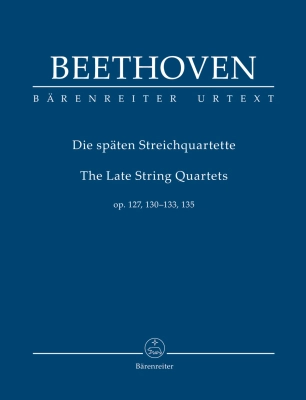Opens in a new window
Baerenreiter Verlag The Late String Quartets op. 127, 130-133, 135 - Beethoven/Del Mar - String Quartet - Study Score
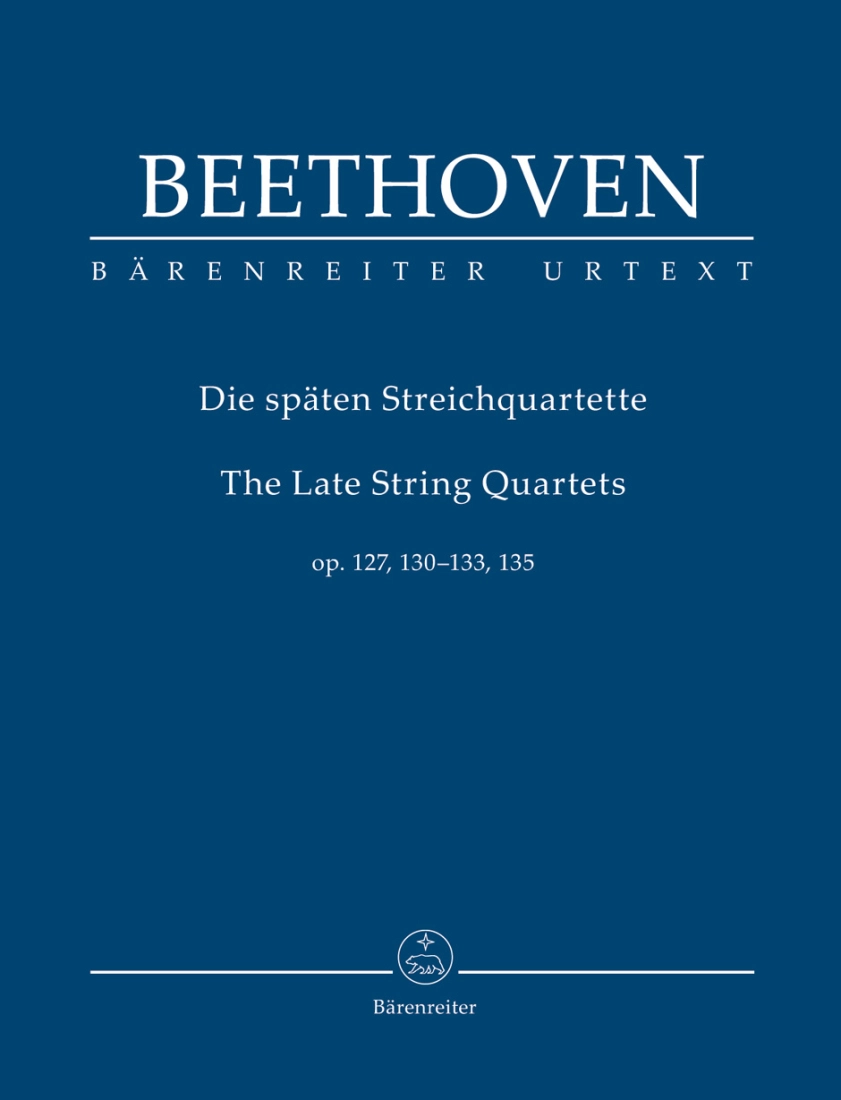
Additional Photos:
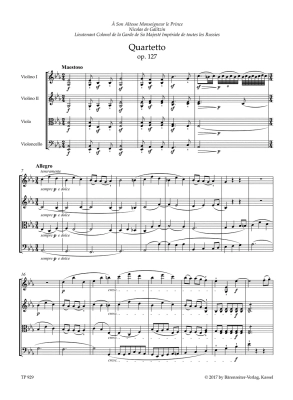
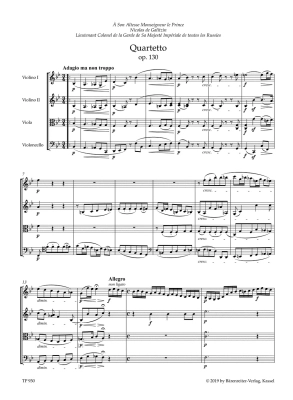
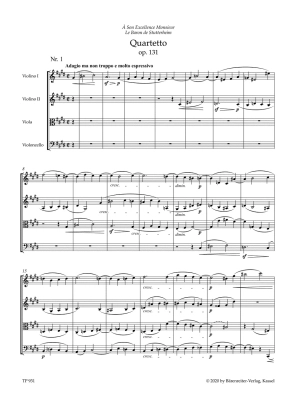
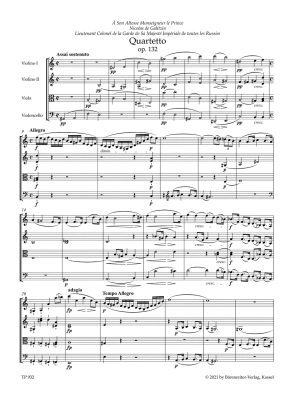
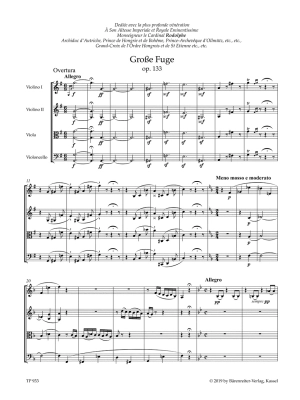
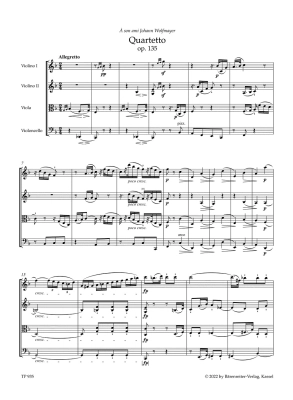
- Composer/Author: BEETHOVEN, LUDWIG VAN
- Instrumentation: STUDY SCORE
- Model # TP934
Editor: Jonathan Del Mar
Foreword/Introduction: Misha Donat, Jonathan Del Mar
Format: Study Score, Urtext Edition
Instrumentation: String Quartet
- Collected edition of the six individual study scores TP00929-933 and 935
- Scholarly-critical edition by Jonathan Del Mar, taking into account all surviving sources; introductory texts (Ger/Eng) by Misha Donat
- Ideal supplement to the performing editions
This compositional period was triggered by Nikolaus Prince Galitzin, who, as "both an enthusiastic music lover and a great admirer of your talent", had asked Beethoven to write new string quartets in 1822. In addition to op. 127 (1824), the quartets op. 132 (1825) -- "a tremendous work, tremendously special in the lyrical movement and the indescribable last" (Thomas Mann) -- and op. 130 (1826), whose climax was originally the Grand Fugue op. 133, are also dedicated to the cello-playing prince. However, it proved to be a stumbling block at the first performance due to its immense difficulties, so that Beethoven was asked to write a substitute finale and to publish the final movement separately and with its own opus number as "a work of art lying outside the realm of ordinary [...] quartet music" (Karl Holz, second violinist of the Schuppanzigh Quartet).
The String Quartet op. 131 (1826) had flowed from Beethoven's pen almost incidentally while he was working on the three Galitzin Quartets -- his inexhaustible imagination and an overflowing wealth of quartet ideas resulted in a formally extremely unusual seven-movement work with a fugal first movement that reveals his involvement with Bach's "Well-Tempered Clavier". Beethoven's last major work to be completed was Opus 135 (1826); among the late quartets, it is the one with the most classical conception -- a "wistful reminiscence of a more beautiful time gone by" (Adolph Bernhard Marx).
Contents:
- Quartet in E-flat major op. 127
- Maestoso -- Allegro
- Adagio ma non troppo e molto cantabile
- Scherzo: Vivace
- Finale: Allegro
- Quartet in B-flat op. 130
- Adagio ma non troppo -- Allegro
- Presto
- Poco scherzoso: Andante con moto ma non troppo
- Alla danza tedesca: Allegro assai
- Cavatina: Adagio molto espressivo
- Finale: Allegro
- Quartet in C-sharp minor op. 131
- No. 1 Adagio ma non troppo e molto espressivo
- No. 2 Allegro molto vivace
- No. 3 Allegro moderato
- No. 4 Andante ma non troppo e molto cantabile
- No. 5 Presto
- No. 6 Adagio quasi un poco andante
- No. 7 Allegro
- Quartet in A minor op. 132
- Assai sostenuto
- Allegro ma non tanto
- Molto adagio -- Andante
- Alla marcia assai vivace
- Piu allegro
- Allegro appassionato
- Grosse Fuge for String Quartett op. 133
- Overtura. Allegro
- Quartet in F major op. 135
- Allegretto
- Vivace
- Assai lento, cantante e tranquillo
- Grave, ma non troppo tratto -- Allegro
Q & A
There are currently no questions for this product.
Reviews
There are currently no reviews for this product. Be the first to write one!



